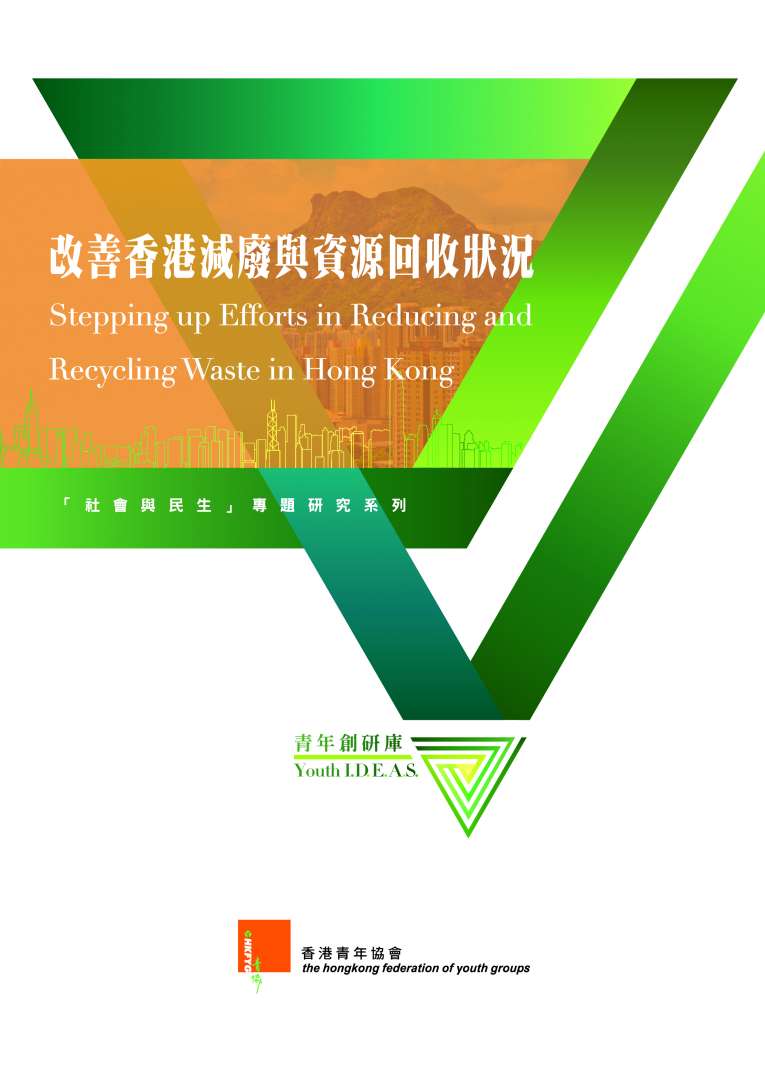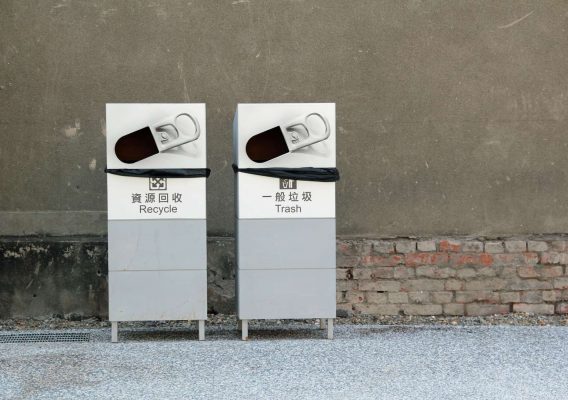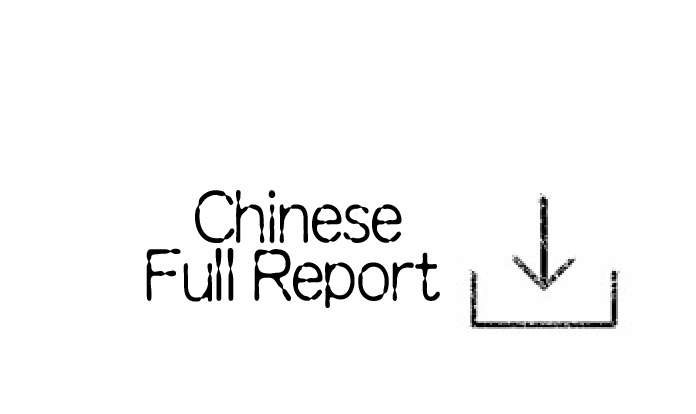Stepping up Efforts in Reducing and Recycling Waste in Hong Kong
Youth I.D.E.A.S. 40
Society and Livelihood
Stepping up Efforts in Reducing and Recycling Waste in Hong Kong
28 March, 2019
 The quantity of Municipal Solid Waste (MSW) in Hong Kong has increased more than 40% over the past 26 years, from 2.7 million tonnes in 1991 to 3.92 million tonnes in 2017, (According to the Environmental Protection Department’s report “Monitoring of Solid Waste in Hong Kong – Waste Statistics for 2017”).
The quantity of Municipal Solid Waste (MSW) in Hong Kong has increased more than 40% over the past 26 years, from 2.7 million tonnes in 1991 to 3.92 million tonnes in 2017, (According to the Environmental Protection Department’s report “Monitoring of Solid Waste in Hong Kong – Waste Statistics for 2017”).
The amount of waste has subsequently caused growing concern and increased awareness amongst the general public. This is especially so due to the harmful effects of the overwhelming levels of waste in our city and landfills. It has also brought a huge challenge to our solid-waste management system, which still mainly relies on the three landfills located in Ta Kwu Ling, Tseung Kwan O and Tuen Mun.
In a small and densely populated city like Hong Kong, landfills are not a sustainable measure. In addition to the level of waste itself, it also directly impacts the surrounding environment. As such recycling should be an important part of our waste-management system, as indicated in “Hong Kong: Blueprint for Sustainable Use of Resources 2013-2022”. Unfortunately, statistics show that the overall recycling rate actually dropped from 52% in 2010, to 32% in 2017. The recycling rate of domestic waste is even lower than the overall recycling rate, which was only 23% in 2017.
Whilst there may be just a tiny difference between resource and waste, the key still lies in the environmental awareness of the general public. To encourage waste reduction and recycling, the Environmental Bureau submitted to the Legislative Council, its Waste Disposal Bill (Charging for MSW) in October 2018. Other regional cities, Seoul and Taipei, have also faced the same difficulties in waste reduction and recycling. These cities have made improvements after establishing a charging scheme in 1995 and 2000 respectively. The government estimated that MSW charging could be implemented in Hong Kong by Dec-2020 at the earliest.
As the inheritors and leaders of our future society, young people (who also play an important role in driving social development) ought to contribute their insights to help guide the government’s waste reduction and recycling policy-making.
Therefore, the experiences of other cities in promoting waste reduction and recycling and the views of Hong Kong‘s younger generation were investigated in this study. Possible solutions will be highlighted that, it is hoped, would help promote waste reduction and recycling in Hong Kong.
In conducting this research in February 2019, data were collected for analysis through a survey of 520 young people (aged 15-34); 20 young people participating in focus-group interviews; and interviews with seven experts or academics.
Discussion
- Given the persistently high disposal rates of waste in recent years, it is urgent for the government to have more measures to address the problem of waste reduction and recycling.
- Promoting waste reduction and recycling is beneficial for developing a sustainable society; and helping to limit both global warming and the negative impacts on our bodies.
- Environmental regulations in Hong Kong are inadequate and lag behind other cities.
- The local recycling industry faces serious difficulties in operating their business.
- The government should improve the convenience and suitability of recycling facilities, according to the young people surveyed.
- The youth questioned the effectiveness of waste-charging schemes. Yet overseas experience shows that the charging scheme has encouraged waste reduction and recycling in the long run.
Recommendation
- Improve the legislation and policy on waste reduction; including the producer- responsibility and waste-charging schemes.
- The government should explore the full implementation of mandatory waste separation in the long run through a pilot scheme.
- Enhance the public’s motivation for recycling by increasing and improving recycling facilities.
- Strengthen the local recycling industry by making better use of the Recycling Fund, providing subsidies to, and improving the recyclable and recycling industries.
- Encourage industry players to participate in environmental product development and innovation.
- Promote waste reduction and environment-friendly lifestyles by establishing “Plastic-Free Days”.




